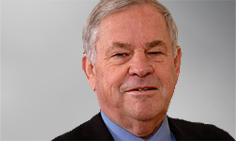IN 100 years, the Medical Journal of Australia has experienced massive changes in communication technology and is now available to readers around the world at the click of a button.
In parallel, have come changes in the way we practise medicine. We may not have developed magic bullets yet but, increasingly, we can target diseases through genetic insights to metabolic faults that underpin diseases.
Our conceptualisation of pathology and disease nomenclature is challenged and changing as we appreciate increasingly the diversity of disorder that lurks behind the light microscopic classification of cancers and otherwise disordered tissues.
To be able to visualise the neurochemical transactions occurring during neural transmission is an amazing achievement that opens new insights for neuroscience in its quest to understand, for example, schizophrenia and dementia.
We have moved heart disease as a killer from youth to old age — not conquering it, admittedly, but robbing it of its most devastating lethality through prevention and complex treatments.
We can now “Tweet”, “like”, download and blog about the latest developments in medicine. Yet, the avalanche of knowledge can easily swamp us.
We now need new tools to dig out from under this mountain of information. Critical appraisal skills, effective summarising of studies through entities such as the Cochrane Collaboration and wise commentary are essential to maintain professional poise and competence in this age.
The MJA must refine its understanding of what its readers want and need. While MJA InSight can readily assess which articles attract the most readers, the picture is less clear for the Journal, at least for its print version. Yet, this is essential intelligence if we are to connect with our readership.
The Journal is working on this market research with energy and making it a critical element of our effort to maintain our relevance to our readers.
The first editor of the MJA, Henry William Armit, wrote in the first issue that the Journal’s role was to “record the progress of scientific medicine, and to assist in rendering the practice of medicine of the greatest benefit to the people of Australia”.
Sounds like a good place to begin the Journal’s second century as well!
Professor Stephen Leeder is the editor-in-chief of the MJA and emeritus professor of public health and community medicine at the University of Sydney.
A Centenary Edition of the MJA is published today mja.com.au

 more_vert
more_vert
MJA should provide an insight on the contemporary medical horizon, report hard medical science as well as scientific research not limited by industry or public funding, decode political statements related to medicine and remain independent.
However, none of that is more important than maintaining a grounded, clinical perspective when considering what Australian health is all about. Quality clinical medicine is the glue between research, politics, funding and humanity in healthcare.
Direct, ethical patient care has been left behind by the recent Australian medico-political climate of protocols, sub-speciality avoidance of whole of patient care and funding directed to Medicare Locals (or predecessor) and away from patient-practitioner interactions, for the greater good.
MJA should promote the clinician as well.
Irrespective of whether we consider healthcare as undergoing ‘reform’, ‘transformation’, or ‘revolution’, the final outcome will be similar. Over the next 10 years the issues of economically sustainable healthcare, task substitution and workforce issues will see the ‘creative destruction’ of medicine as we know it. The purpose of the MJA at it’s foundation was to “record the progress of scientific medicine, and to assist in rendering the practice of medicine of the greatest benefit to the people of Australia”. How shall the MJA position itself in the future? Will it side with the ‘traditionalists’ in the medical spectrum or will it provide an opportunity for the ‘transformationists’ and the ‘traditionists’ to create something that truely provides the greatest benefit to all the people of Australia? I hope for the sake of our profession and the health of the nation the MJA chooses the later option.
A succinct summary of the transformation in emphasis the MJA should embrace if it is to reflect and progress the rapid transformation of knowledge and best practice in modern medicine.